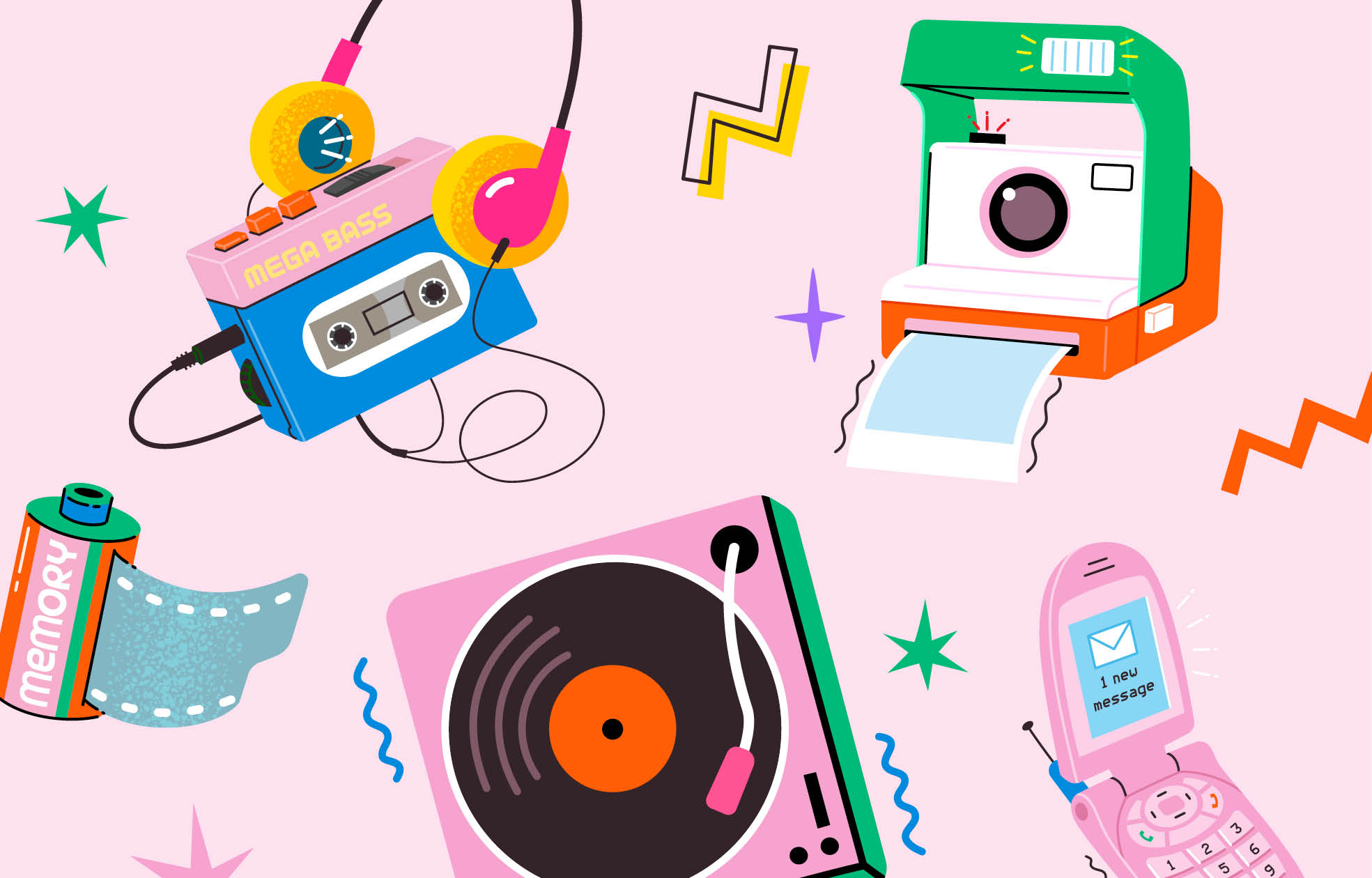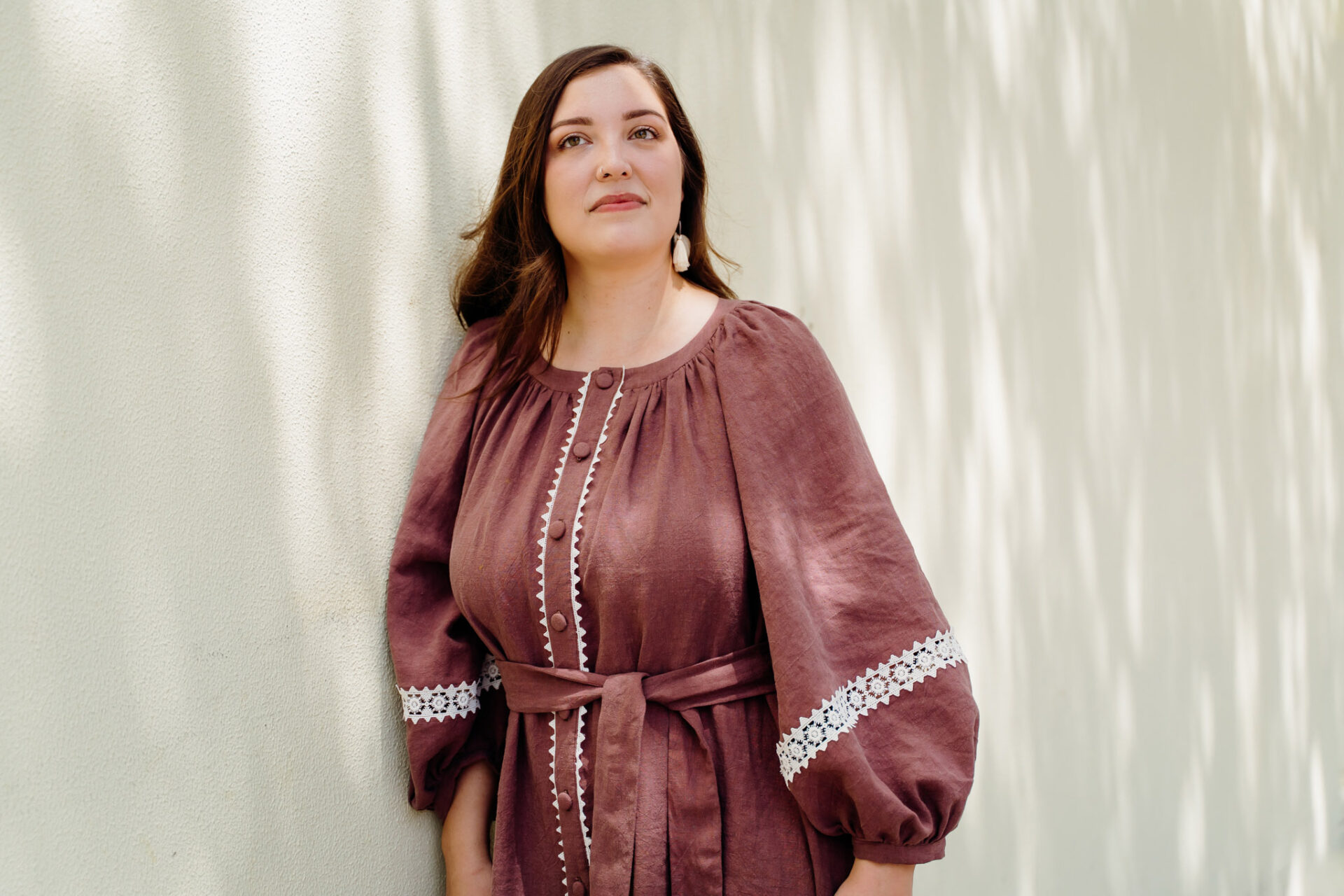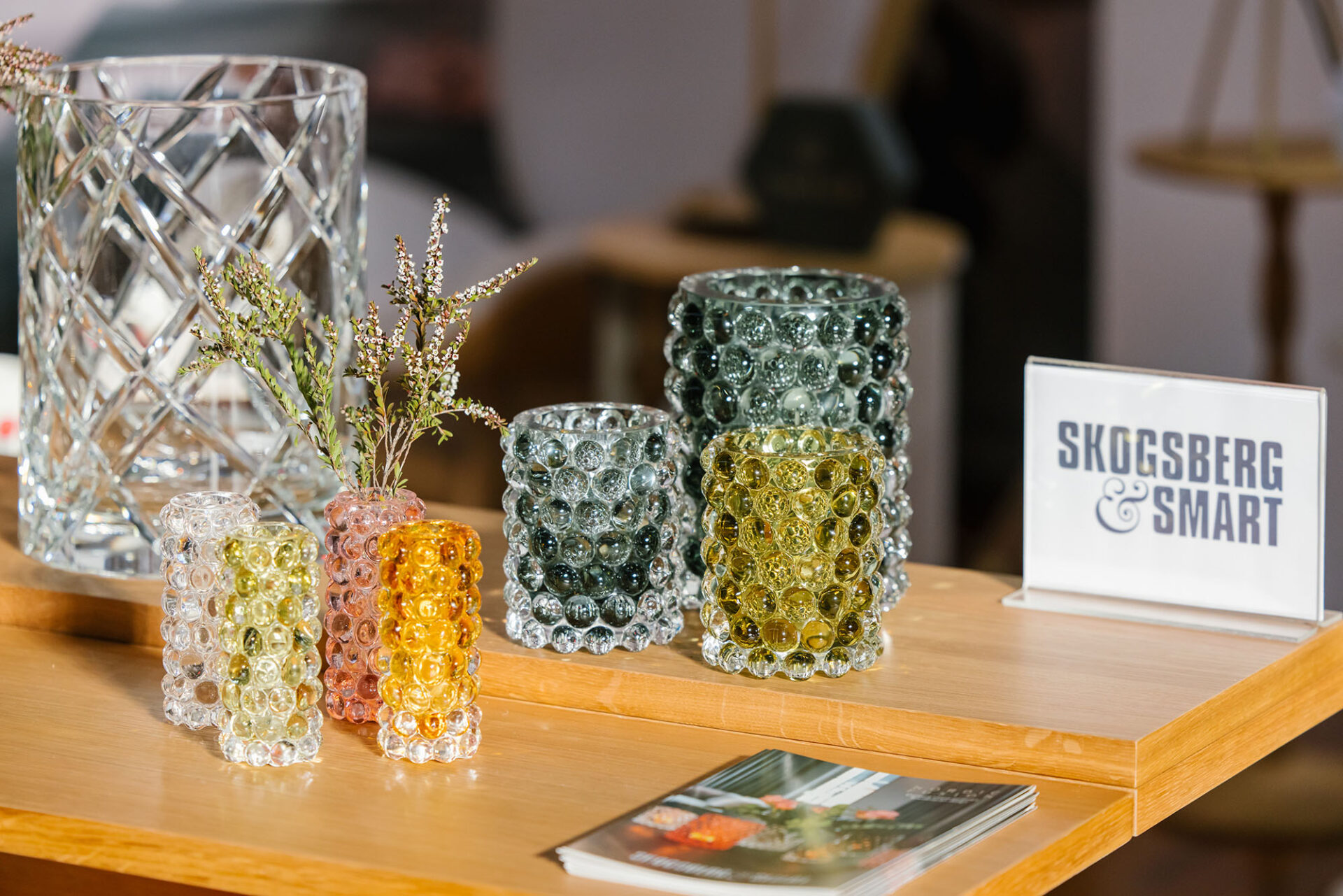Why this Pioneering Ethical Fashion Label is “No Longer a Sustainable Brand”
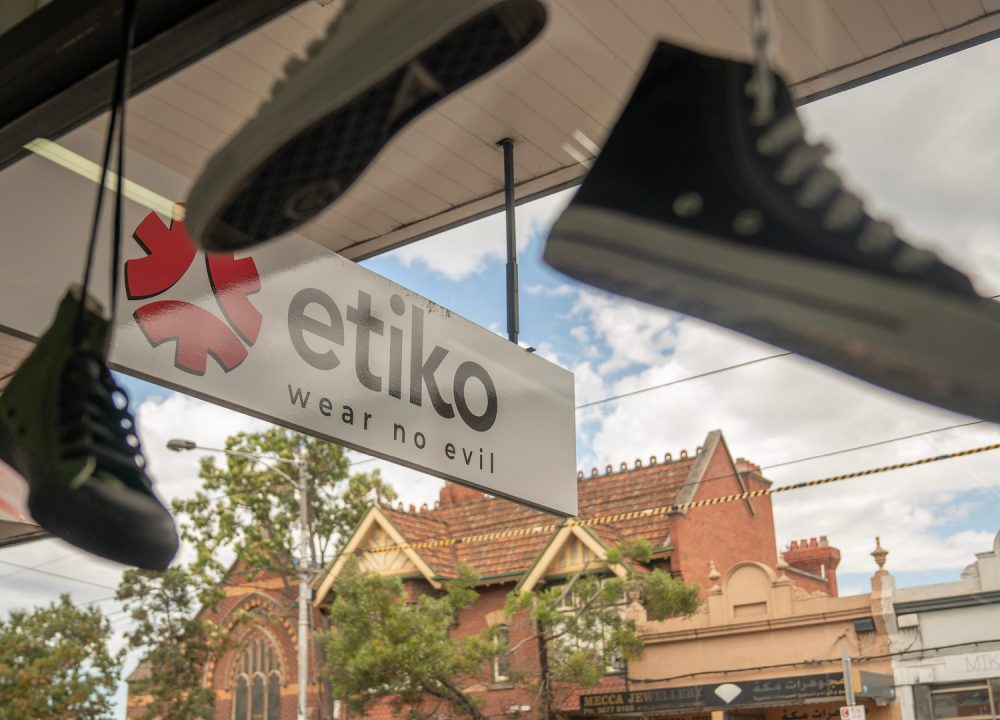
- Words by Peppermint
photos SUPPLIED BY ETIKO
The first fashion brand in the southern hemisphere to become Fairtrade certified, Etiko pioneered ethically made clothing and footwear in Australia. Achieving an A+ in every release of the Australian Ethical Fashion Report since the report’s founding in 2013, the brand made a statement last year, joining Outland Denim and Joyya, when it boycotted the report citing concerns with the grading system.Etiko has now moved one step further, releasing a statement that claims, “We’re no longer a sustainable brand.”
“Sustainability has been a major focus for Etiko since we launched back in 2005,” the statement reads. “We’ve spent the past 17 years trying to create products that cause minimal environmental harm – from manufacturing to post-consumer life – while also empowering the people in our supply chains. For 2023, we’re taking a different approach and we won’t be calling ourselves a sustainable brand anymore.”
To learn more about what the decision means and Etiko’s misgivings about using the word “sustainable”, we caught up with founder Nick Savaidis.
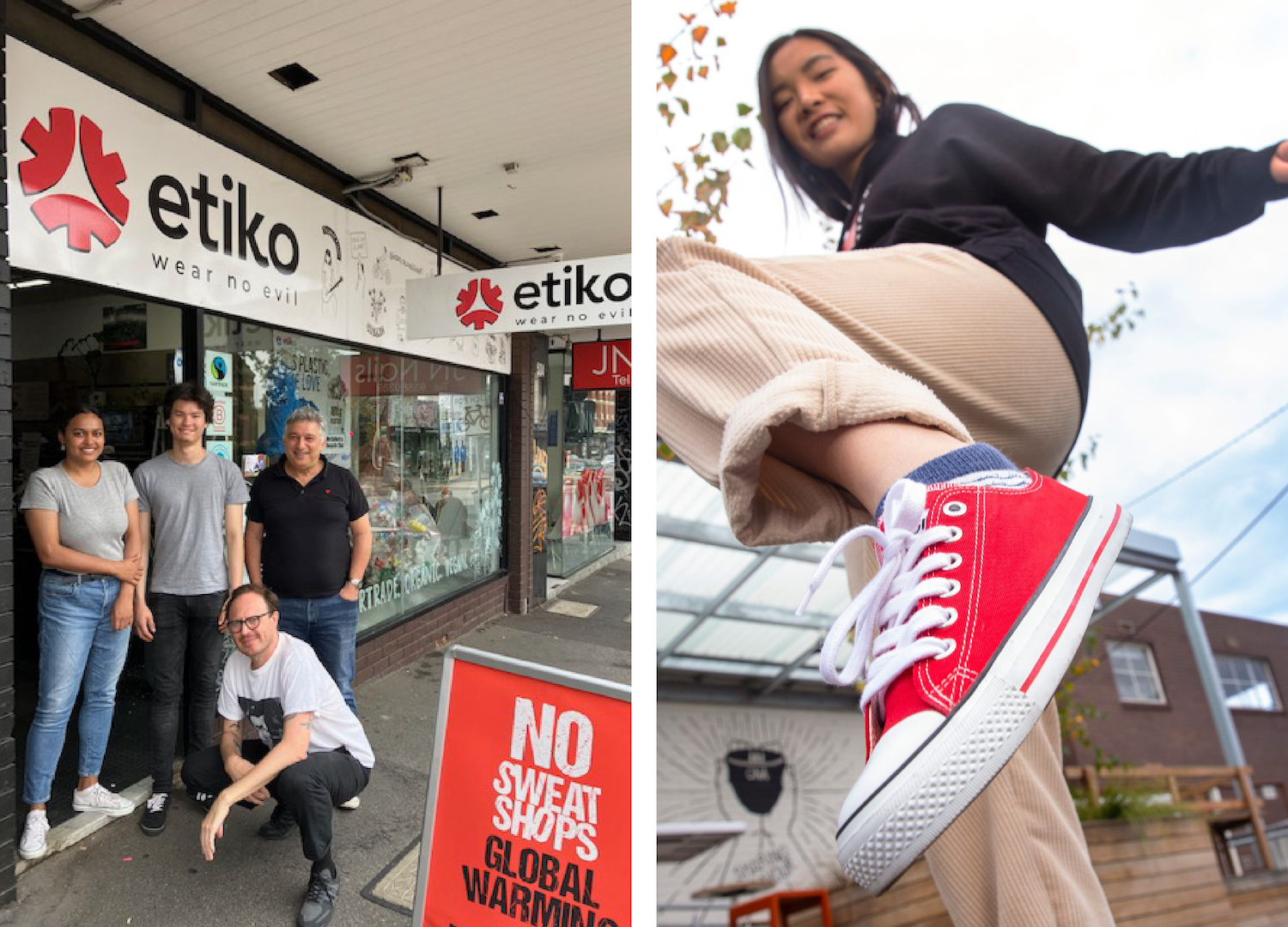
You put out a statement last week where you said you “won’t be calling [yourself] a sustainable brand anymore”. What prompted this decision?
I’ve had misgivings about using the word “sustainable” for quite a few years and there are a few reasons for that.
First, the term has become part of a greenwashing campaign prioritising profits over the planet. You can see blatant examples of this when big brands label themselves (or a range of their products) as sustainable when they actually do very little to minimise their environmental impact. There are clothing companies producing weekly fast fashion made from plastic fibres that use the term sustainable – there’s nothing sustainable about what they’re doing.
We take responsibility for our brand’s impact and I want our customers also to take responsibility for their purchases.
Secondly, it doesn’t take a genius to realise that manufacturing new ‘things’ has an environmental impact. Even manufacturing Etiko clothing and footwear has an impact, despite our best efforts to mitigate the effect. Let’s be real about that and talk about taking responsibility for that impact instead of saying it’s sustainable.
And lastly, the planet is at a point where we simply can’t stuff around anymore. Sustaining the current situation isn’t good enough. I don’t want to hear about sustainability anymore; I want to hear about regeneration and all efforts to improve the current situation. It’s time for change. That’s why we’re sticking with the term “responsible” instead of “sustainable” from now on. We take responsibility for our brand’s impact and I want our customers also to take responsibility for their purchases.
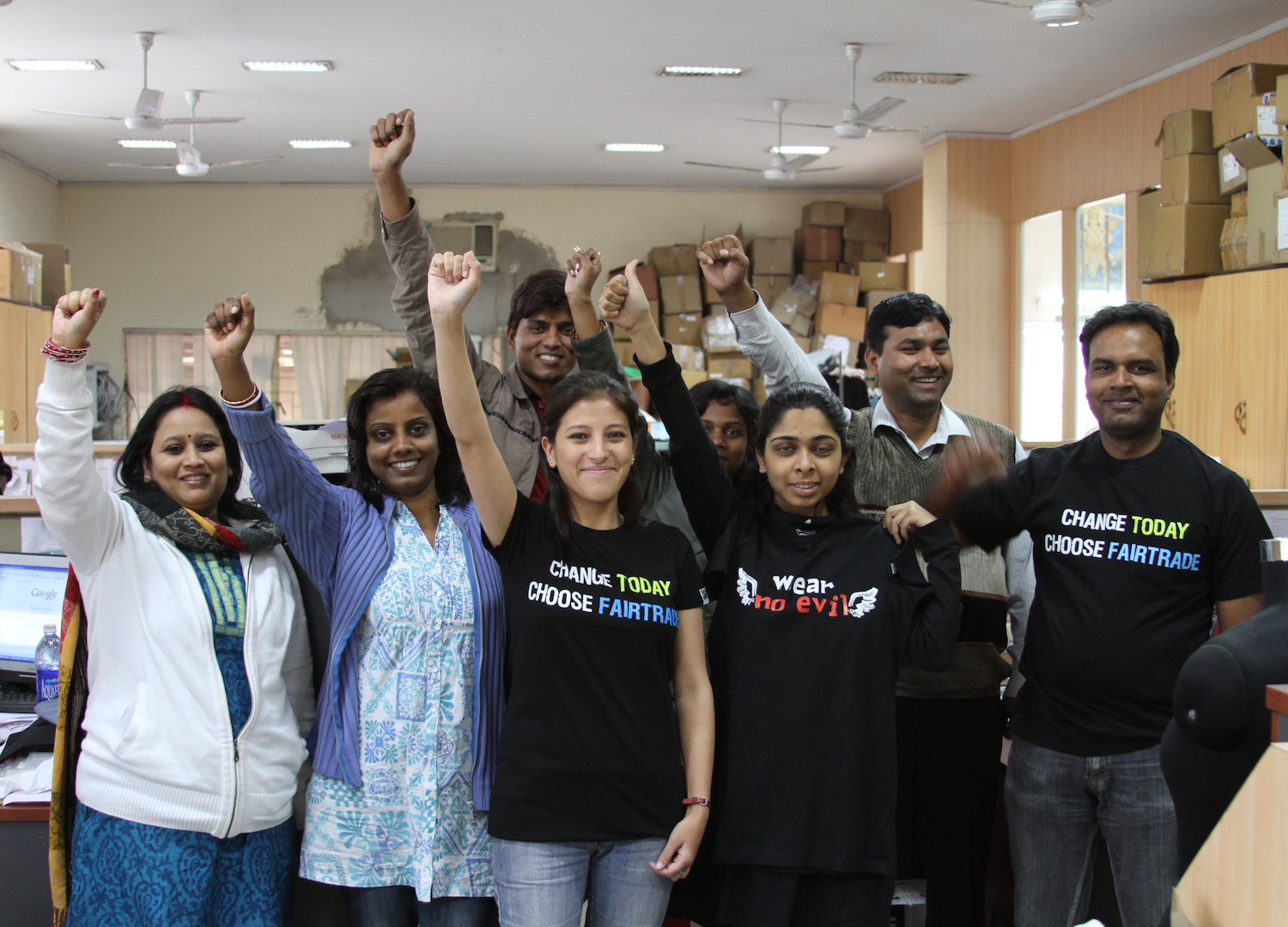
Why do you believe the word “sustainable” has become tarnished by greenwashing?
I don’t want to name names, but if you take a look through a major shopping centre or even browse some online stores, you’ll find dozens of companies using the word “sustainable” (or similar eco-ethical words) to describe a fabric, a collection or their entire brand. Sometimes it’s easy to see that they’re being deceitful but other times it’s not. And that’s where greenwashing is most dangerous – when it adds to customer confusion.
Over the years, it’s become harder and harder for customers to figure out which brands are genuinely ethical and which ones aren’t. That’s because the meaning behind words like “sustainable” have become diluted from overuse and misuse. But it’s also because so many certification schemes appear to back up a brand’s claims. Many of those schemes aren’t worth the paper they’re written on, but the everyday shopper doesn’t know the difference unless they invest a lot of time into researching them. Plus, I think well-intended fashion reports have actually added to customer confusion over the years. Those reports have given kudos to big brands doing very little to help the environment.
That’s where greenwashing is most dangerous – when it adds to customer confusion.
Of course, I will never argue that responsibly made products shouldn’t exist. They are a much better alternative for essential purchases. But let’s stop labelling these new items as sustainably made. Their creation has an environmental impact, and most people are consuming new things at an unsustainable rate. Let’s get real and be honest about the problems we’re facing and the reason those problems exist.
What does being a “responsible brand with regenerative goals” mean to Etiko?
Being a responsible brand means understanding that our manufacturing choices have consequences on people, animals and the planet – and taking accountability for those consequences. It also means going beyond the bare minimum of what’s expected. For us, that means contributing to regenerating the resources our company uses, a renewed commitment to communicating the pros and cons of ethical fashion and continuing to invest in better solutions and outcomes while giving back to the communities we work and sell in.
Here are some examples of how we do that.
At Etiko, ethics have always been at the core of our decision-making process. We align ourselves with certification schemes that are rigorously audited: Fairtrade, B Corporation and Social Traders (because Etiko is a certified social enterprise).
We carefully consider the materials we use. Our entire product range is vegan and we only use organically grown textiles. Our shoes are made with natural rubber instead of petroleum-derived rubber that doesn’t biodegrade. We are almost plastic-free throughout our entire company. And we take back our customer’s old Etiko clothing and footwear for Australian-based recycling.
To give back to communities and the planet, we chose to offset our carbon emissions through a social enterprise called One Seed. One Seed subsidises farmers in East Timor and tracks the trees they plant on a live map. We also offer a tipping service for our customers to tip the people who made their garments directly. We donate a portion of our profits from select merchandise to charities in Australia and the countries involved in our supply chain (like our Less Plastic More Love t-shirt, which supports plastic collectors in India). And, we regularly communicate about our work and the fashion industry, and campaign for transparency within our industry.
This all seems pretty good, right? And it is – we’ve worked hard to create this offering. But we have never settled for “good enough”. By stepping away from the word “sustainable” and choosing to use the word “responsible”, I believe we’re continuing our commitment to continuous improvement and opening up a conversation that the fashion industry has avoided for too long.
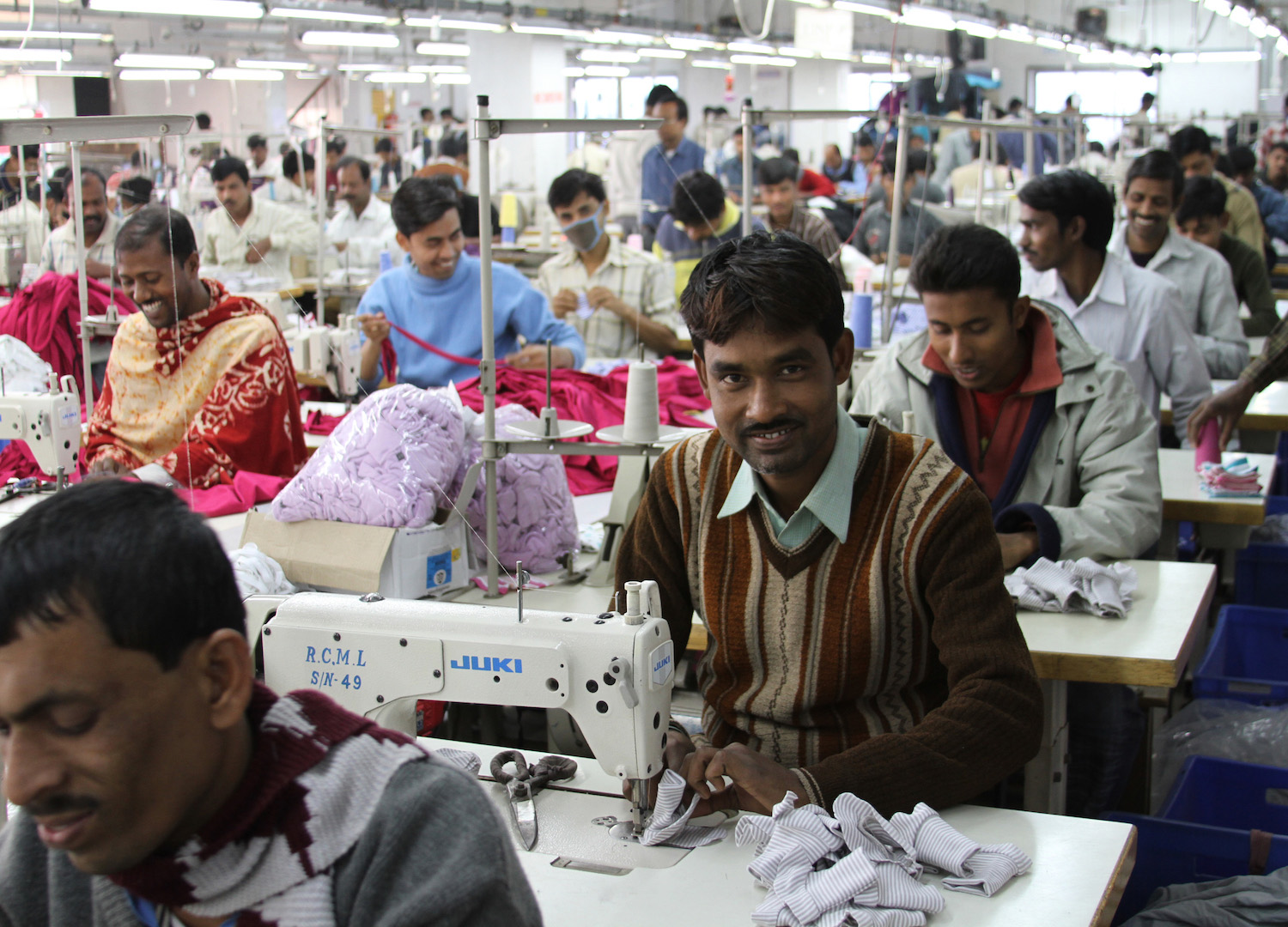
Does it come down to a case of semantics? Do you think changing the words we use can make a difference in the space and empower consumers to think more considerably about their consumption?
Communication is crucial when it comes to educating consumers about their choices. For years we have written monthly blogs to educate our customers and inspire change. A few years back, we produced a guide to ethical consumer choices that covers almost every aspect of everyday life. And I’ve donated more hours than I care to think about talking about ethical fashion. Words matter and they can cause change – and I’ve witnessed that change over the 15 years that Etiko has existed. If I hadn’t seen change, I probably would have given up by now.
But words can also confuse – that’s how greenwashing works. That’s why I’ve always tried to encourage critical thinking. We have to be critical of the claims we see. I really believe certification schemes play a role in providing credibility, but they need to be better regulated. There are too many schemes that contribute to greenwashing. I would like to see this change in the very near future, and I’ll keep talking about it until it does.
By stepping away from the word “sustainable” and choosing to use the word “responsible”, I believe we’re continuing our commitment to continuous improvement and opening up a conversation that the fashion industry has avoided for too long.
READ MORE – Make Change Happen: The 2022 Ethical Fashion Report Calls for Action
How do you approach the “for profit versus for purpose” divide as a business?
Profit margins have always been something I’ve grappled with – how much is enough when you want to create positive change?
For Etiko, our manufacturing costs are higher than a non-ethical fashion company. It costs more to use responsibly produced materials and packaging and pay a living wage instead of a government-sanctioned minimum wage. And, because we’re a Fairtrade company, we also pay a Fairtrade Premium of 10–15% on top of the cost of manufacturing. That premium goes directly to the workers and benefits their communities. Prioritising our ethics costs a lot of money. Yet, we want to remain competitively priced and affordable to the mainstream market – because what’s the point of creating ethically-made products that only the elite can afford?
That means we’ve had to keep our profit margins low. In hindsight, this has probably held us back over the years. Not having high-profit margins means we could never invest in the support teams we need, we have to keep our stock levels low, and we’ve never had a big marketing budget to promote our work.
That said, I don’t regret our priorities. Our commitment to ethics has provided an excellent example to other brands interested in ethical fashion. They’ve seen what’s possible and aimed to replicate or exceed it – and that’s a good thing. I believe that by staying true to our priorities, our impact has been more positive and we’ve helped inspire change.
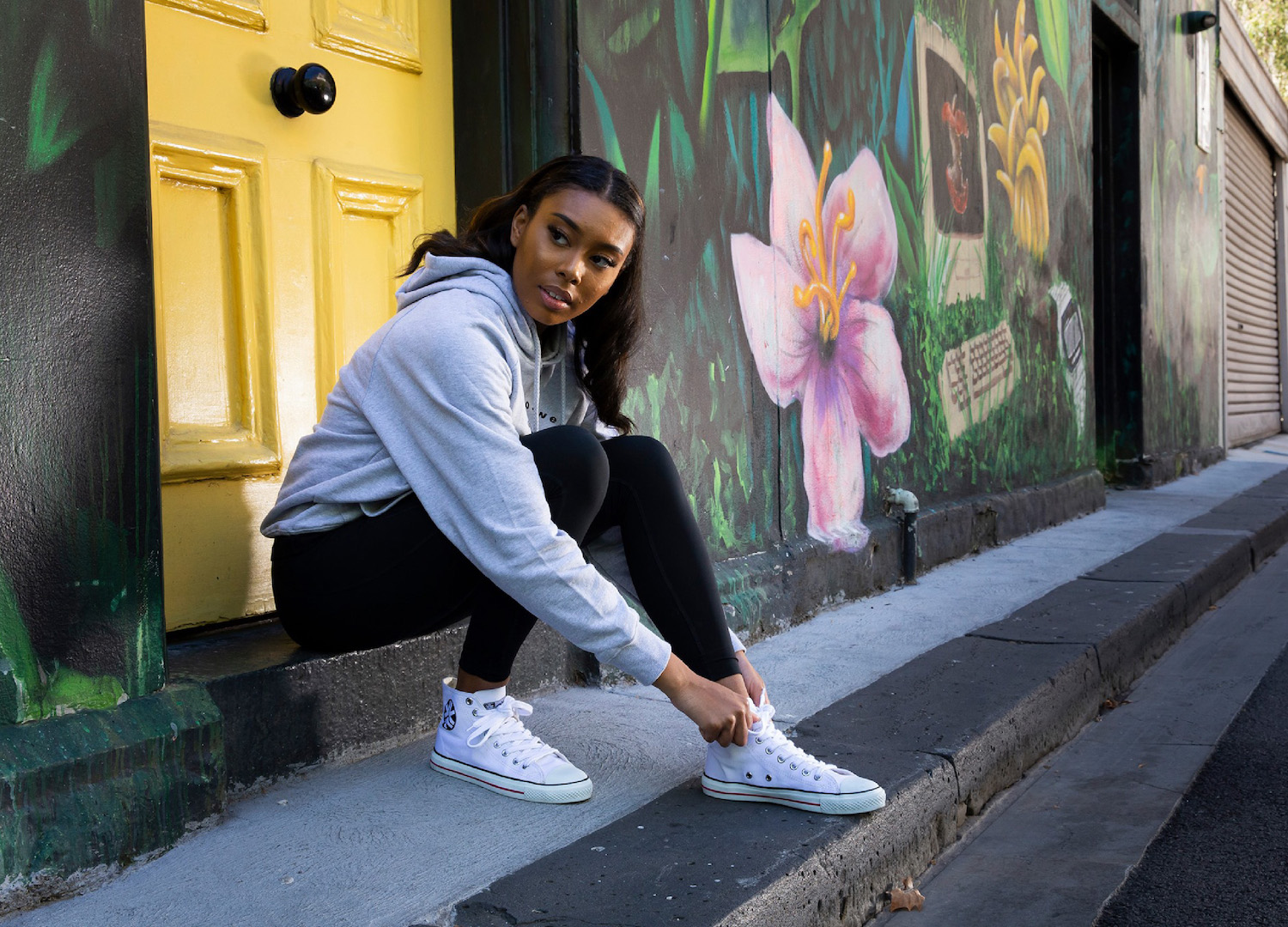
Will this change the way Etiko does business? How so?
Focusing on responsibility and regeneration instead of sustainability is a way for us to refocus our work. It helps us with our decision-making processes, communication goals and the business’s future direction.
A few years ago, we shifted our focus to circularity – though I’ve always had issues with the fact that circularity often fails to prioritise people within fashion’s supply chains. However, from an environmental perspective, circularity drove our decision-making process (while we continued to prioritise the wellbeing of our supply chain workers). That’s why we introduced recycling programs for our footwear and clothes.
In the immediate future, our new focus will impact the types of not-for-profits we choose to work with and fundraise for. It will also affect the activist work we do, the intent of our communication with our customers and the changes we hope to inspire in them. From a product perspective, it will drive our decision-making around the materials we use and how we can offset them and contribute to regeneration.
A brand doesn’t have the right to call itself ethical unless it’s paying its workers a living wage, as well as the farmers who grow their materials. And they can’t call themselves ethical unless they prioritise protecting the environment and its animals as much as they prioritise their profits.
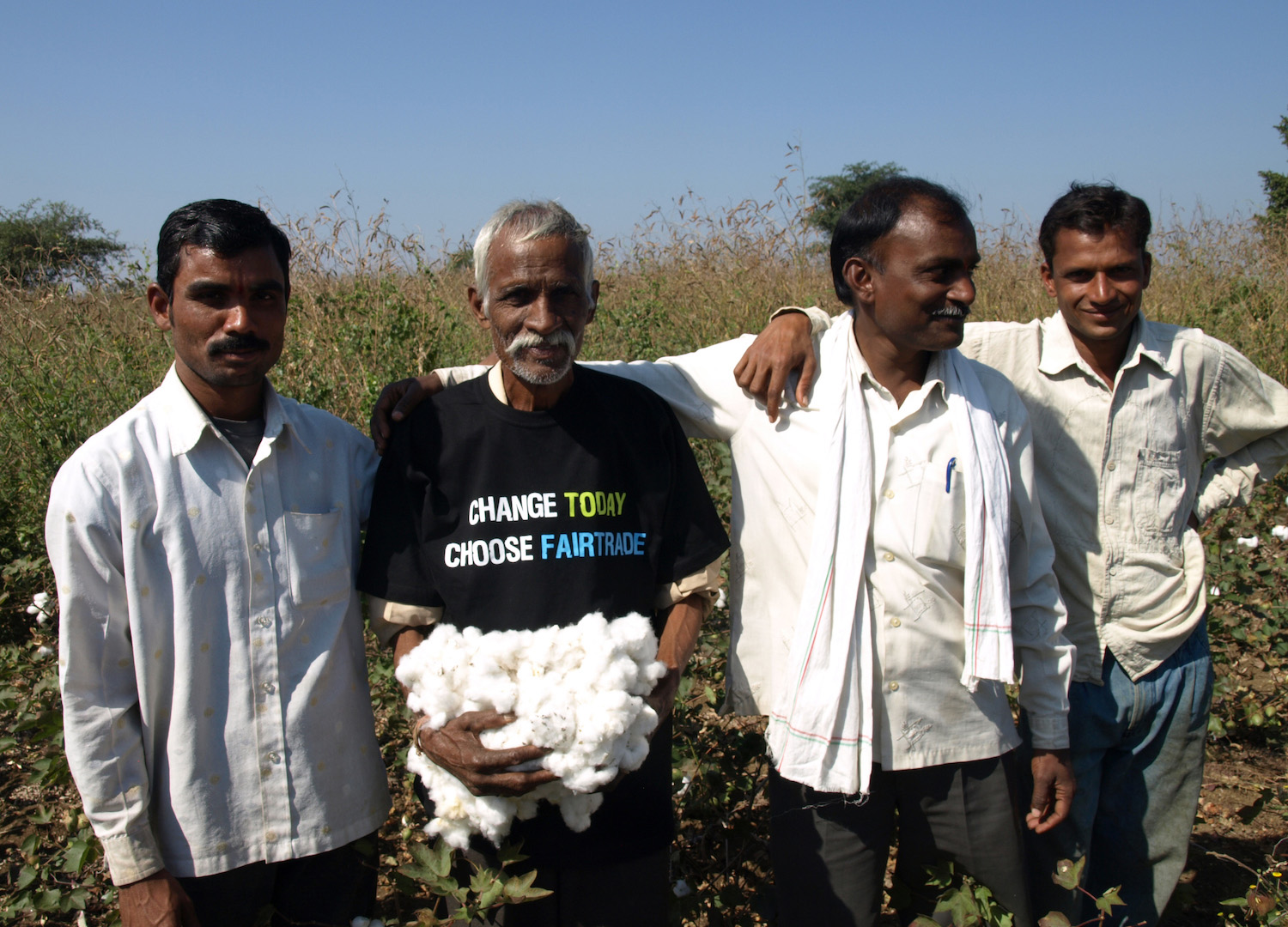
This isn’t the first time you’ve spoken out about greenwashing in the ethical fashion space – Etiko made the decision to boycott the 2022 Ethical Fashion Report. Where do you believe the industry needs to go from here?
Greenwashing has been a source of incredible frustration to me over the years – mainly because it’s completely unethical and counterproductive to our work, but also because we have to compete against it.
There are a few different factors that enable greenwashing to occur.
First up, there’s a lack of legislation around the claims companies can make – though this is changing, especially in Europe, but also in Australia.
There’s also a lack of regulation around certification schemes. Customers look to certification schemes as validation – but without doing a lot of research, they don’t know which certification schemes are trustworthy. It shouldn’t be complicated for customers to know which brands they can trust – accreditation and certification schemes need to be regulated.
I also think that well-intended not-for-profits have incidentally contributed to greenwashing. It has taken about nine years to reach a point where the Ethical Fashion Report more accurately communicates the true scores of fashion brands. During that time, it gave kudos to brands who didn’t deserve it, which added to consumer confusion. But the fact is this. Not-for-profits shouldn’t be tasked with using their resources to keep fashion brands accountable. It should be down to government legislation.
A brand doesn’t have the right to call itself ethical unless it’s paying its workers a living wage, as well as the farmers who grow their materials. And they can’t call themselves ethical unless they prioritise protecting the environment and its animals as much as they prioritise their profits.
I also think that the focus of industry change needs to be directed away from individuals and onto government agencies and corporations. Sure, individuals can make better purchasing decisions. But what about the procurement chains in big corporations and agencies?
Every corporate in Australia is a signatory to the UN’s SDGs, yet they rarely apply it to their procurement. Government agencies and corporates need to be responsible for ethical procurement – including uniforms. Uniform production is a massive part of the textile industry, and for radical change to occur, uniforms should be ethically produced and procured. At least 99% of Australian schools have uniforms, and then there are councils, government services and private corporations. Let’s make sure we consider them when discussing change in the fashion and textile industry.
WANT MORE RESPONSIBLE FASHION CONTENT? RIGHT THIS WAY!
JOIN OUR MAILING LIST
Brighten up your inbox with our not-too-frequent emails featuring Peppermint-related news, events, competitions and more!
explore
More articles
Look, I don’t want to make anyone panic but IT’S DECEMBER!!! If you’re planning to give homemade gifts, you’re going to have to act fast. …
Hang out with us on Instagram
🌻 The Paddington 🌻
This is a much-loved staple, created for Issue 50 in 2021. We love seeing the #PeppermintPaddingtonTop continually popping up in our feeds!
How stunning is our model Elon MelaninGoddessEfon – she told us it was one of the first times she had been asked to come to a shoot with her natural hair. 🌻
We worked with South African patternmaker Sarah Steenkamp of @FrenchNavyNow_ to create this wardrobe essential – the perfect puff-sleeve blouse. Raglan sleeves make it the ultimate beginner sew, plus the gorgeous back buttons let you add your own personal twist.
Pattern via the link in bio! 🪡
Photos: @KelleySheenan
Fabric: @Spoonflower
Model: MelaninGoddessEfon

“In the 1940’s, Norwegians made and wore red pointed hats with a tassel as a form of visual protest against Nazi occupation of their country. Within two years, the Nazis made these protest hats illegal and punishable by law to wear, make, or distribute. As purveyors of traditional craft, we felt it appropriate to revisit this design.”
Crafters have often been at the heart of many protest movements, often serving as a powerful means of political expression. @NeedleAndSkein, a yarn store in Minnesota, are helping to mobilise the craftivists of the world with a ‘Melt The Ice’ knitting pattern created by @Yarn_Cult (with a crochet pattern too), as a way of peaceful protest.
The proceeds from the $5 pattern will go to local immigrant aid organisations – or you can donate without buying the pattern.
Raise those needles, folks – art and craft can change the world. 🧶
Link in bio for the pattern.
Images: @Gather_Fiber @NeedleAndSkein @a2ina2 @KyraGiggles Sandi.204 @WhatTracyMakes AllieKnitsAway Auntabwi2
#MeltTheIce #Craftivism #Knitting #CraftForChange

TWO WEEKS TO GO! 🤩
"The most important shift is moving from volume-led buying to value-led curation – choosing fewer, better products with strong ethics, considered production and meaningful stories. Retailers have real influence here: what you buy signals what you stand for. At Life Instyle, this means using the event to discover and invest in small-scale, planet-considerate brands that align with your values and your customer’s conscience. Consumers don’t need more things; they need better things, and retailers play a key role in selecting, contextualising, and championing why those products matter."
Only two more weeks until @Life_Instyle – Australia`s leading boutique retail trade show. If you own a store, don`t miss this event! Connect with designers, source exquisite – and mindful – products, and see firsthand why this is Australia’s go-to trade show for creatives and retailers alike. And it`s free! ✨️
Life Instyle – Sydney/Eora Country
14-17 February 2026
ICC, Darling Harbour
Photos: @Samsette
#LifeInstyle #SustainableShopping #SustainableShop #RetailTradeEvent

Calling all sewists! 📞
Have you made the Peppermint Waratah Wrap Dress yet? Call *1800 I NEED THIS NOW to get making!
This gorgeous green number was modelled (and made) by the fabulous Lisa of @Tricky.Pockets 🙌🏼
If you need a nudge, @ePrintOnline are offering Peppermint sewists a huge 🌟 30% off ALL A0 printing 🌟 when you purchase the Special Release Waratah Wrap Dress pattern – how generous is that?!
Head to the link in bio now 📞
*Not a real number in case that wasn`t clear 😂
#PeppermintWaratahWrapDress #PeppermintPatterns #SewingPattern #WrapDress #WrapDressPattern

8 Things to Know About January 26 - from @ClothingTheGaps:
Before you celebrate, take the time to learn the truth. January 26 is not a day of unity it’s a Day of Mourning and Survival for Aboriginal and Torres Strait Islander peoples.
It marks the beginning of invasion, dispossession, and ongoing colonial violence. It’s time for truth-telling, not whitewashed history.
Stand in solidarity. Learn. Reflect. Act.
✊🏽 Blog written by Yorta Yorta woman Taneshia Atkinson.
🔗 Link in bio of @ClothingTheGaps to read the full blog
#ChangeTheDate #InvasionDay #SurvivalDay #AlwaysWasAlwaysWillBe #ClothingTheGaps

As the world careens towards AI seeping into our feeds, finds and even friend-zones, it`s becoming increasingly hard to ignore.
We just wanted to say that here at Peppermint, we are choosing to not print or publish AI-generated art, photos, words, videos or content.
Merriam-Webster’s human editors chose `slop` as the 2025 Word of the Year – they define it as “digital content of low quality that is produced usually in quantity by means of artificial intelligence.” The problem is, as AI increases in quality, it`s becoming more and more difficult to ascertain what`s real and what`s not.
Let`s be clear here, AI absolutely has its place in science, in climate modelling, in medical breakthroughs, in many places... but not in replacing the work of artists, writers and creatives.
Can we guarantee that everything we publish is AI-free? Honestly, not really. We know we are not using it to create content, but we are also relying on the artists, makers and contributors we work with, as well as our advertisers, to supply imagery, artwork or words created by humans. AI features are also creeping into programs and apps too, making it difficult to navigate. But we will do our best to avoid it and make a stand for the artists and creatives who have had their work stolen and used to train AI machines, and those who are now losing work as they are replaced by this energy-sapping, environment-destroying magic wand.
Could using it help our productivity and bottom line? Sure. And as a small business in a difficult landscape, that`s a hard one to turn down. We know other publishers who use AI to write stories, create recipes, produce photo shoots... but this one is important to us.
`Touch grass` was also a Merriam-Webster Word of the Year. We`ll happily stick with that as a theme, thanks very much. 🌿








